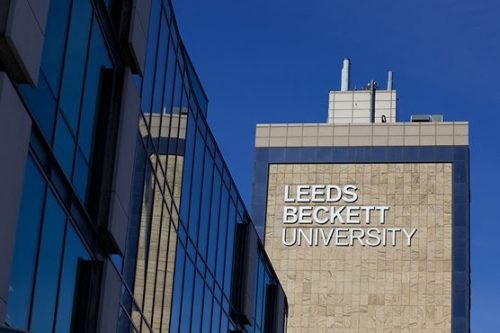University and business team up to develop products using waste from NHS

Leeds Beckett University and Q Medical Technologies have secured Government funding to develop and commercialise new products by repurposing healthcare waste.
The team will begin by commercialising new, low-carbon aggregate substitutes known as floc – repurposed and treated, clinical and offensive NHS waste – which are in demand for use in civil engineering.
Dr Ash Ahmed, reader in Civil Engineering Materials Science in the School of Built Environment, Engineering and Computing at Leeds Beckett, is leading the project.
He explained: “This opportunity to process and use healthcare waste – particularly NHS waste – to create new products, has multiple benefits: reducing costs to the healthcare sector, reducing the emissions from the disposal of healthcare waste, and reducing the drain on dwindling natural resources such as sand.
“Sand suitable for construction is a finite resource and there is pressure to create more sustainable supply chains to preserve this valuable commodity for future generations.
“The NHS produces an estimated 156,000 tonnes of clinical waste per year with disposal costs of around £700m per year – largely through waste management contracts that end in incineration or landfill, both of which are harmful to the environment.”
The 30-month collaboration between the university and the business is a Knowledge Transfer Partnership (KTP), part-funded by the Government through Innovate UK.
The KTP aims to create long-term innovation and New Product Development capabilities for NuGreen – a sister company of Q Medical – to develop, test, commercialise and launch products in new sectors.
The project will refine and commercialise earlier proof of concept studies between Leeds Beckett and NuGreen in the use of floc as an aggregate – most notably sand – replacement in materials such as concrete and asphalt.
Clare Atkinson, founder of NuGreen said: “The opportunity to divert high volumes of healthcare waste from incineration and transform it into a valuable, low carbon construction material – that replaces the use of a finite resource such as sand – is the future we see.
“Healthcare waste incineration contributes to poor air quality, increasing the strain on NHS resources by impacting respiratory health – this is a cycle we want to break.”
By the end of the project, NuGreen will have taken healthcare waste through a product development lifecycle, resulting in a commercially viable product to take to market as an aggregate substitute.
The Leeds Beckett team will support NuGreen to develop and commercialise further products using other forms of healthcare waste, such as silicone, during and beyond the completion of the KTP.
A skilled graduate will be recruited, as a full-time member of the NuGreen team and with the full support of the Leeds Beckett academic team, to manage the project as a KTP Associate.
Dr Sepehr Ghaffari, senior lecturer in engineering, and Killian Ngong, senior lecturer and chartered civil engineer, will lead the asphalt concrete investigations.
Dr Alfred Chinta – an expert in supply chain management with a focus on technology and sustainability – will lead on the strategic support, embedding the innovation and product development systems into the business.








